Search Results
Fine Jewelry University Articles matching: “green tourmaline”
Showing only FJU Article results. Click here to show all results.
Fine Jewelry University (Show All FJU Articles)
-
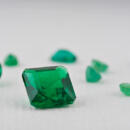
Gem in the Spotlight: Emerald
… are a member of the beryl mineral family (along with morganite and aquamarine) and are valued for their rich green color. The intensity of an emerald’s hue depends on the presence of chromium and vanadium in the crystal structure. Emerald… a symbol of the reproductive forces of nature. Modern science has shown us that the human eye is more sensitive to green than to any other color thereby making it easier on the eyes. Pliny said that emeralds were the only gemstones that …
-
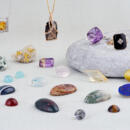
Gem in the Spotlight: Quartz
…is “Alaska Diamond” for rock crystal alongside “Herkimer Diamonds” (see below). In recent times, the term “Green Amethyst,” which was commonly used for Prasiolite, has come under fire. It even attracted the attention of the US Federal … gems can be stunningly beautiful and intricate. You can also see why Prasiolite has previously been referred to as “Green Amethyst.” Under the surface, all of these fancy names are just different ways of saying “Quartz!” Crystal Name …
-

Gem in the Spotlight: Topaz
… shades is available from light Sky Blue to dark London Blue. Topaz is also found in less commonly known colors like green, pink, and purple. Imperial Topaz is by far the most valuable variety, while colorless topaz is often the least … and the gem ruined very easily. Mystic topaz comes in virtually any color from sunset orange, to violet, to green. These coatings can allow topaz to be any color of your preference. Topaz itself is a hard gemstone with a Mohs hardness of …
-
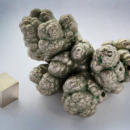
What to Do When Your Ring Irritates Your Skin
… can begin hours or even days after contact and may last for several weeks. Some people’s skin even turns black or green when they wear certain jewelry. One of the most common metal allergies is Nickel which is added to pure gold in many … necessarily allergies. For example, copper or metals that contain copper (like bronze) can cause the skin to turn green where the metal comes in contact with it. This isn’t an allergic reaction but a simple discoloration on top of the …
-
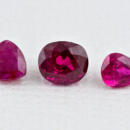
Gem in the Spotlight: Ruby
… of Sanskrit. Rubies get their name from the Latin word “ruber,” which means red. This is also where rubellite tourmaline (the red variety of tourmaline) gets its name. Pliny the Elder mentioned rubies in his work Natural History, including …
-
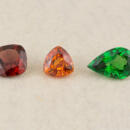
Gem in the Spotlight: Garnet
… varieties brighten the world in colors of yellow to gold, bright orange to true orange, brown to cinnamon, pinks to greens, and of course many shades of red. Garnets are given as symbols of consistency, perseverance and good health. … – brown to orange sometimes with a tint of violet varieties. The grossular, demantoid and uvarovite are the Emerald green to yellow type. Garnets are beautiful and widely diverse gemstones
-
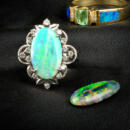
Gem in the Spotlight: Opal
…packed together, you will get different colors. Opals can display just about every color of the rainbow, but hues of green and blue are the most common. Typically the higher end opals have a darker body color, and a wide range of colors. … treatment. Opals can also sometimes be dyed, giving them an unnatural but fascinating body color such as a vibrant green or pink. Some opals that have cracked can sometimes be reused by making “mosaic opals” gluing smaller broken pieces …
-
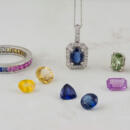
Gem in the Spotlight: Sapphire
… stone’s color is used before the word sapphire. Sapphire, a variety of corundum, comes in all colors except red (the red variety being known as ruby), but is especially popular in deep blue. Fancy colored sapphires including pink, green, orange, and golden yellow are magnificent in any jewelry. See More on Etsy › With the exception of the diamond, which measures 10 on the Mohs scale, sapphire and ruby (9 on the Mohs scale) are the toughest and most durable gemstones. …
-

The Magic of Polarized Light
…due to their unique chemical structure, actually polarize light themselves. These gems are doubly refractive (DR) and they will split incoming light in multiple directions. Some common examples of doubly refractive gems are sapphire, tourmaline, and moissanite. These are contrasted with singly refractive (SR) gems like diamond that only bend light in one direction. Gemologists use the term birefringence to refer to how doubly refractive a particular gem is. By far the most …